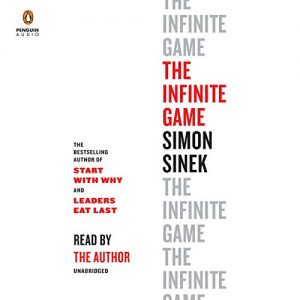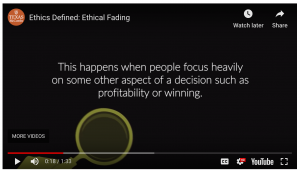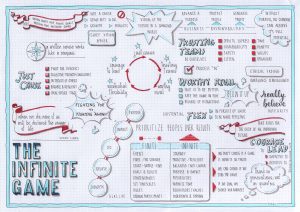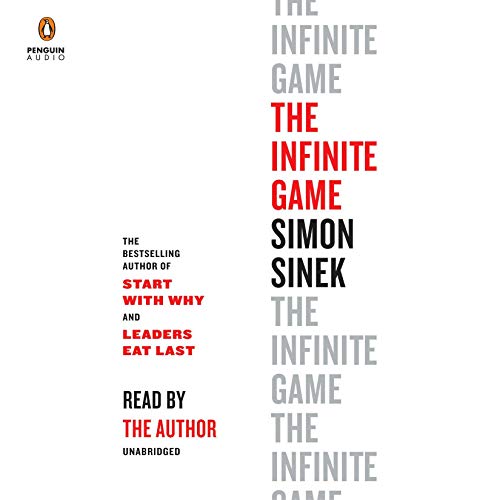 Chess is not an infinite game, nor is football. These have defined beginnings , ends and winners. In his latest book, Simon Sinek argues that many organizations, businesses, corporations and even politicians are playing ‘finite games’. They are concerned about the various finish lines, be they quarterly reports, the next mid-term, the bottom line, or profit. I read this this book as an educator in an independent school – an organization that could and probably should be focused on elements of a ‘finite’ game. However, Education is an infinite game, and as educators we are players in that game.
Chess is not an infinite game, nor is football. These have defined beginnings , ends and winners. In his latest book, Simon Sinek argues that many organizations, businesses, corporations and even politicians are playing ‘finite games’. They are concerned about the various finish lines, be they quarterly reports, the next mid-term, the bottom line, or profit. I read this this book as an educator in an independent school – an organization that could and probably should be focused on elements of a ‘finite’ game. However, Education is an infinite game, and as educators we are players in that game.
In this way, “The Infinite Game” is a great book for educators. You would be interested in this book if:
(1) You want to learn more about big conceptual change in economics, from Friedman to Marx
(2) You want to explore case studies and examples of business who are now playing the “infinite game” and how it is profitable in this rapidly changing market
(3) You want a new lens through which to look at your role as an educator.
Infinite games are – to borrow from Epstein’s book “Range” – wicked environments where the rules are not always clear, there is no finish line, and change is frequent. Our ‘clients’ are students and families, not shareholders, who turn to us with their dreams, hopes, fears and possibilities. We don’t ‘win’ when students make it into the university of their choice, and we don’t lose if they don’t. We are focused on building their capacity in a myriad of ways to thrive in world, and build in them a moral compass.
Educators are susceptible to pressures of a finite game, like trends in research and pedagogy, and even competitiveness amongst other schools in our catchments, where we are competing for clients. However, my school is 125yrs old, and has weathered these tumultuous seas. We are a school that ‘has traditions, but we are not a traditional school’. I think that this phrase reflects an adaptable mission.
In fact, our school mission is ‘to prepare young women to make a difference’. And the muscles that we are currently flexing as a school are to adjust the way we prepare our students based on the research about the future. In this way, we are sticking to the infinite game.
“Our lives are finite, but life is infinite… none of us will ever be declared the winner of life.” (Sinek)
We don’t get to choose the rules of the game, we are in the position to choose how we play – with what mindset? With a finite mindset, it is about accumulating power and wealth. If we play with an infinite mindset, we are living in support of a cause that is bigger than ourselves. As an educator, we need to reflect on this.
Are we there to teach the curriculum and, as a History teachers, make all students history majors? History experts? Or are we there to build capacity in our students to appreciate that, whatever their own passions and dreams, that history can offer perspectives, tools and strategies to support them in their pursuit?
In life, we are players in multiple ‘finite’ games – like sports, performing arts, maybe even our current career? But we are also involved in many different ‘infinite’ games – parenting, our life’s work or passion project, volunteering, and friendship, etc… Sinek’s book highlights the mindsets that we can and should adopt in these realms.
Playing the infinite games is about contribution, learning with and from others, and  serving others. He provides rich examples of companies and individuals alike who are playing the infinite game. A few highlights for me was learning about how CVS decided to no longer sell tobacco products, Patagonia’s advertising campaign “Don’t Buy this Jacket” to name but two.
serving others. He provides rich examples of companies and individuals alike who are playing the infinite game. A few highlights for me was learning about how CVS decided to no longer sell tobacco products, Patagonia’s advertising campaign “Don’t Buy this Jacket” to name but two.
He warns that playing by finite game when it comes to parenting for example, can lead to ethical fading. This happens when not only do we want our children to have the best, but also to be the best. Perhaps, this is the game that many parents were involved in when they abused the system to get their own kids into the top universities? They didn’t want their children to learn, they wanted to be in the best places to learn. It certainly didn’t instil in them a love of learning over their lifeline. Perhaps we all fall into this trap at one point or another.

Sinek is able to provide examples, advice and strategies to get ourselves on track to play the infinite game. Playing the infinite game is about living a life that is concerned about taking responsibility for later impacts, for secondary and tertiary results of our actions.
“We want to be remembered for what we did for others… to serve is good for the game.” (Sinek)
This book resonated with a few of the books that I’ve been reading about how markets are changing, how desires and spending habits are changing, and how we in North America are looking for something different. I think that these books all speak to the growing momentum in education around wellness, sustainability and how educators are more and more responsible for more and more outside of the curriculum. With the changing future we stand in front of, we must consider these as the guiding context for our role as educators.

